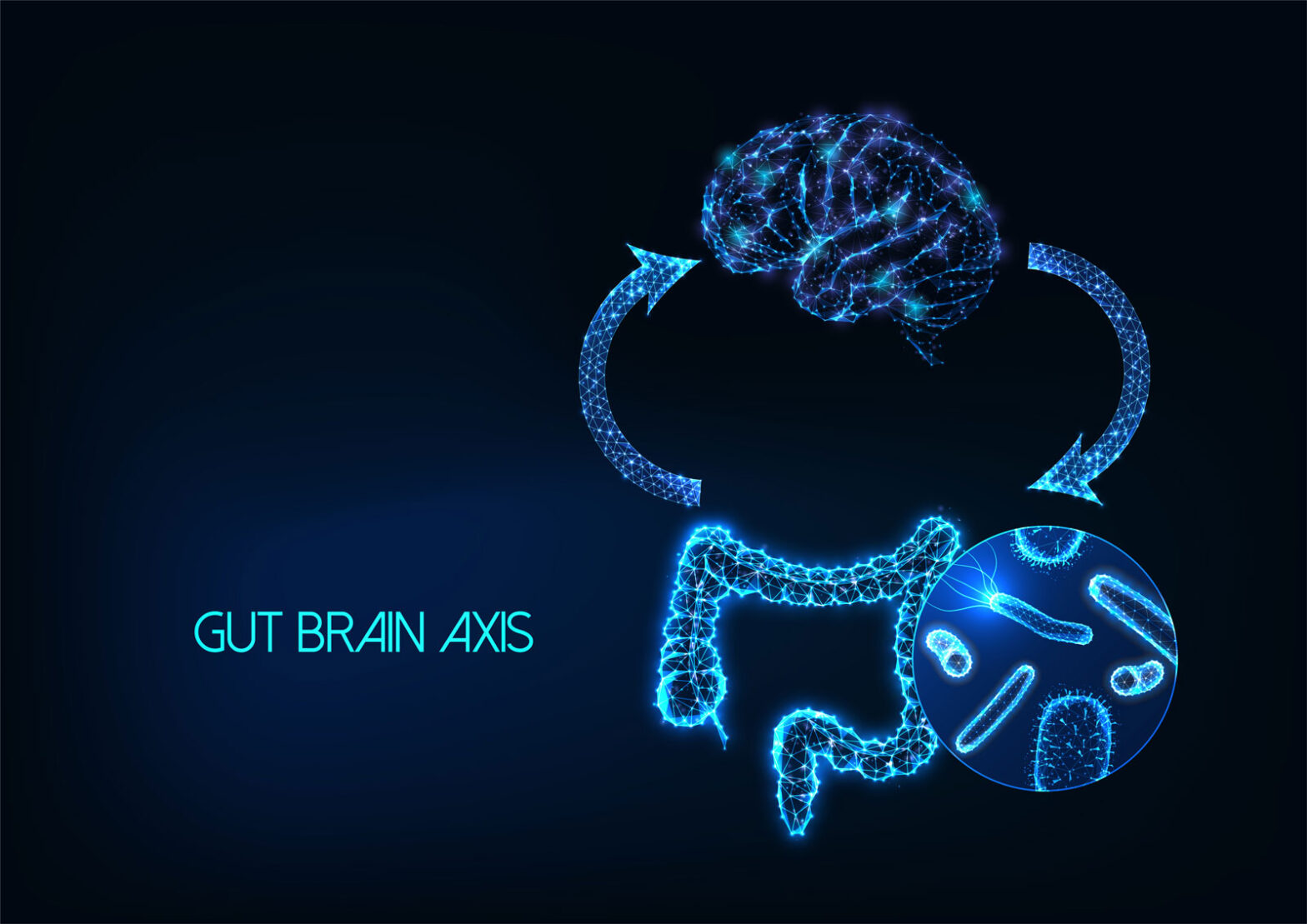For the past few weeks, I have been writing about how to tap into your instincts and intuition. This week I am pivoting and talking about the hardwiring of our bodies and how it applies to our gut instinct. Did you know the gut is considered the second brain because it has its own nervous system: the enteric nervous system (ENS). The ENS enables the gut to work both with the brain in the head via the spinal cord and central nervous system and also independent of it by transmitting information via the vagus nerve. But interestingly, about 90 percent of vagal fibers that travel between the gut and brain are afferent—this means the information is traveling from the ENS to the central nervous system (CNS).
Physiologically, the enteric nervous system provides local control of the gastrointestinal (GI) tract functions: secretion, barrier function, movement of fluid, regulation of local blood flow, intestinal motility, etc. (Stick with me—this won’t hurt for long!) The gut also transmits signals of nausea, bloating, or satiety to the brain. In simple terms: these two brains talk to each other nonstop via the vagus nerve. But, as noted, most information comes from the gut brain to the head-brain.
The head-brain is the CEO of the brain trust as it creates cognition with all the input from the senses as well as the gut and heart brains. The head-brain integrates all that information, allowing for conscious thinking, planning, and creating, and the subconscious ruminations of the default mode network. This brain also manages many unconscious bodily functions, so you don’t have to think about beating your heart, breathing in and out, or circulating your blood. The gut-brain handles the unconscious management of digestion and elimination functions. While doing all that, the gut-brain communicates with the head-brain through sensations and messages via the “vagus nerve highway.” For simplicity, I will call the head-brain “the brain” and the gut-brain “the gut” from now on.
The brain receives enormous dumps of information from the gut and sense organs all the time. The brain needs teamwork and delegation skills to handle the workload. On its own, it can’t handle split-second, life-and-death decisions like pausing to let a bullet go by. And swerving out of the way of an oncoming car is certainly done without thinking about it. If the brain had to analyze and process that situation (a car driving erratically) and then tell our body how to respond (swerve), it’d be too late. This “thinking without thinking” requires instant messaging coming from another source: the gut.
The gut has a sense of knowing that travels fast, through afferent vagal fibers to the brain, and doesn’t require analytical breakdown and deliberation because, somehow, it just knows. (By the way, the vagus nerve is the main component of the parasympathetic nervous system, which is responsible for the rest and digest response that counteracts the sympathetic fight or flight response). Just think about all the nonverbal messages that the gut is responsible for; transmitting to the brain, in addition to other sensations coming from the heart, brain, liver, and lungs via the vagus nerve. We are “reflexively” responding to these messages 24/7.
New insights into the gut-brain connection are making a big impact on the understanding of the body-mind connection in medicine. Because of this, gastroenterologists are taking on the role of counselors to soothe an unsettled, anxiety-riddled gut. Also, companies like Viome are analyzing the gut’s biome to ensure the bugs in the gut are optimized for better results in both the gut and brain. Not only is our diet impacting our thinking through the gut, but the sympathetic nervous system’s stress response negatively impacts the gut causing IBS, constipation, inflammation, nausea, and other unsavory things. Improving one’s diet, sleep, and exercise will greatly improve the gut’s functioning, while activities such as meditation, breathwork, and yoga will downregulate the fight or flight system. They do this by activating its parasympathetic sister by massaging the vagus nerve and calming the brain’s activities. These practices greatly increase resilience and propel us on an upward spiral of uncommon awesomeness. As a bonus, we also develop an increased awareness of how our bodies and minds function, upping our intuitional intelligence. Next week, I will continue to look at how honing into “the gut” and hearing the messages it delivers to you is important for navigating the everyday waters of life.
“If you’ve ever ‘gone with your gut’ to make a decision or felt ‘butterflies in your stomach’ when nervous, you’re likely getting signals from an unexpected source: your second brain . . . this ‘brain in your gut’ is revolutionizing medicine’s understanding of the links between digestion, mood, health, and even the way you think.”
—Johns Hopkins Medicine
“The Brain-Gut Connection”


